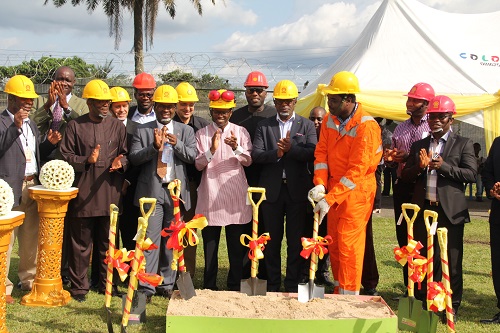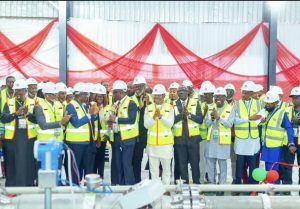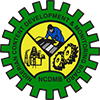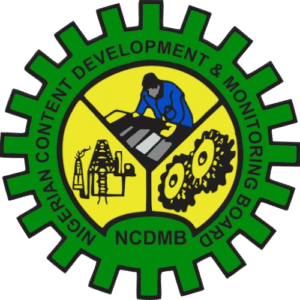The Nigerian Content Development and Monitoring Board (NCDMB) and Shell Petroleum Development Company of Nigeria (SPDC) on Friday performed the ground breaking of a mini industrial park, taking a major step towards the attainment of Nigerian Content goals.
The event took place in Port Harcourt, Rivers State and featured three original equipment manufacturers (OEMS) utilised by Shell for its operations-Alcon, Fiddil, Prime Atlantic-each getting a land space measuring 1800 square meters within Shell’s Industrial Area to build their facility and domesticate some of their services.
The Shell promoted industrial park was in furtherance of the NCDMB’s Equipment Components Manufacturing Initiative (ECMI) introduced in 2011 to encourage OEMs and their representatives in Nigeria to set up facilities for manufacturing of spare parts and accessories of equipment required for oil and gas operations.
In his speech, the Executive Secretary of NCDMB, Mr. Denzil Kentebe explained that the event re-affirms Federal Government’s vision to use Nigerian Content as an instrument for the industrialization of the Nigerian economy, listing targets of the initiative to include transformation of representatives of OEMs from “marketers to manufacturers and maximize retention of industry spend within the economy, on procurement of equipment, manufacturing, supply, installation and after sales services.
He identified other targets to include reversing the trend of equipment rentals by Nigerian companies by encouraging Nigerians to acquire equipment for activities such as drilling services and construction.
Kentebe further explained that “in a bid to achieve the ECMI policy thrust, the Board introduced the Nigerian Content Equipment Certificate (NCEC) as a Local Content Requirement (LCR) for participation in bids connected to supply or utilization of equipment in the oil and gas industry. “This was to ensure that the full capacities of local manufacturers or owners of equipment are exhausted before any equipment can be imported.”
He commended Shell for being one of the first stakeholders to embrace the ECMI, having proposed and obtained approval from the Board in 2012 for the OEM domestication program. He enjoined other stakeholders of the industry to embrace such collaborative efforts in a bid to jointly develop the local supply chain.
The Executive Secretary reiterated that domestication of local manufacturing holds the key to real Nigerian content growth and provides the platform for value adding activities such as research and innovation, processing of local raw materials and establishment of ancillary services; all of which create employment and empowerment for the nation’s youths and contributes to the national gross domestic product.
Speaking at the event, the Managing Director and Country Chair of SPDC, Mr. Osagie Okunbor described the initiative as a key intervention of the Shell Companies in Nigeria to support Nigerian Content Development, adding that it would improve cycle time, enhance service delivery and engender other long term economic benefits including employment opportunities for Nigerians.
He listed other key objectives to include increase in control, simplicity and potential for long term cost saving.
The MD who was represented by the Project Director, Mr. Toyin Olagunju recalled that the OEMs and their Nigerian Local partners were issued the NCEC by the NCDMB in 2012.
He maintained that Shell Companies in Nigeria remained committed to supporting Nigerian Content and all other strategies aimed at increasing the participation of Nigerian businesses in the Oil and Gas industry.
According to him, “SPDC supported a Nigerian manufacturer, Egba Split Clamp Nigeria Limited to refine their product with hydro and pressure tests. Egba clamps are now approved for use in SPDC operations and we are working towards the full deployment of these clamps in our operation. We also continue to support other manufacturing initiatives including pipe mill development, development of drilling fluids and production chemicals.”
Discover more from Nigerian Content Development & Monitoring Board
Subscribe to get the latest posts sent to your email.











